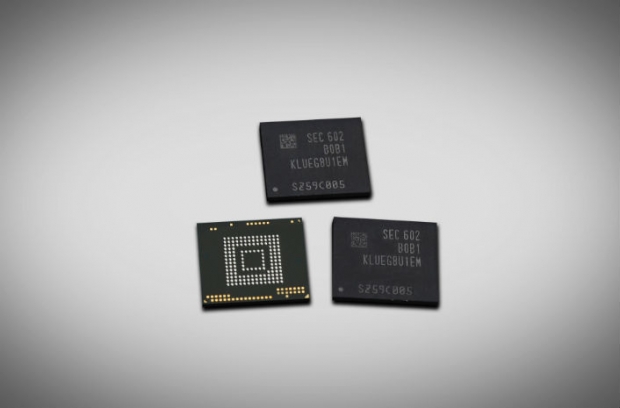The range is based on the JEDEC Solid State Technology Association Universal Flash Storage 1.0 Card Extension Standard. It is a bit of a mouthful, but it means that they are next-generation replacements for the micro-SD format.
Samsung's internal testing, which may or may not be accurate, showed its top-end 256GB UFS memory card offers 530MB/s sequential read performance - some five times faster than 'a typical UHS-1 micro-SD card.' It can carry out 40,000 input output operations per second (IOPS), bringing performance in line with SATA-connected solid-state drives (SSDs).
Senior vice president for memory product planning and application engineering at Samsung Electronics Jung-bae Lee said that Samsung's new 256GB UFS card will provide an ideal user experience for digitally-minded consumers and lead the industry in establishing the most competitive memory card solution.
'By launching our new high-capacity, high-performance UFS card line-up, we are changing the growth paradigm of the memory card market to prioritise performance and user convenience above all.'
Yes he used the word "paradigm" so he had probably run out of real words to say about the device.
Performance drops below SSDs for write tasks. At 170MB/s sequential write performance is not bad and better than a micro-SD card. Samsung has said when the cards are coming out or how much they will cost.




